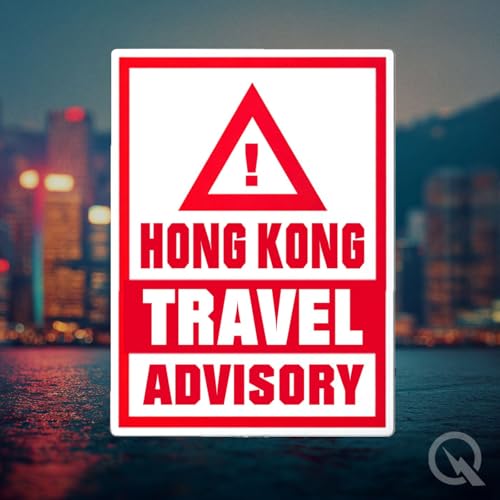
Hong Kong Travel Alert 2025: Essential Safety Tips for Tourists Navigating Crime, Weather, and Health Risks
No se pudo agregar al carrito
Solo puedes tener X títulos en el carrito para realizar el pago.
Add to Cart failed.
Por favor prueba de nuevo más tarde
Error al Agregar a Lista de Deseos.
Por favor prueba de nuevo más tarde
Error al eliminar de la lista de deseos.
Por favor prueba de nuevo más tarde
Error al añadir a tu biblioteca
Por favor intenta de nuevo
Error al seguir el podcast
Intenta nuevamente
Error al dejar de seguir el podcast
Intenta nuevamente
-
Narrado por:
-
De:
Hong Kong enforces strict regulations on self-defense items such as pepper spray, stun guns, and certain knives, with possession potentially leading to immediate arrest. The legal climate remains tightly controlled, especially following new national security laws. Participation in protests or public assemblies—even those perceived as peaceful—can result in police intervention and swift detention, sometimes without charge or access to legal counsel. Listeners are strongly warned against joining demonstrations or making public political statements, either in person or online, while visiting Hong Kong.
Extreme weather events, notably typhoons and heavy monsoon rains, are increasingly common from May through October due to climate change. These severe conditions can trigger travel delays, flooding, landslides, and abrupt disruptions to transportation and infrastructure. The Hong Kong Observatory provides updated weather alerts and travelers must be prepared to modify plans quickly in response to adverse conditions. High levels of air pollution and extreme humidity can contribute to health risks including dehydration or heatstroke, and local public health advice should be closely monitored.
Travelers are also urged to stay informed about infectious disease risks. According to the U.S. Centers for Disease Control and Prevention, Hong Kong continues to experience imported and possible local cases of Chikungunya Fever linked to an ongoing outbreak in Guangdong Province, just north of the city. Precautions such as the use of mosquito repellent, wearing long sleeves, and staying in air-conditioned or well-screened accommodations are highly recommended. While Chikungunya vaccines are available in the United States, they are not yet locally registered in Hong Kong. Travelers should consult their healthcare professionals about vaccination possibilities before departure.
It is crucial for all visitors to purchase comprehensive travel insurance prior to their trip, as medical costs for non-residents are significantly higher and not all activities, such as hiking or water sports, are automatically covered. Ensuring that required medications are packed and personally accessible is highly advised, along with letting your doctor know about any allergies relevant to immunizations.
In case of emergencies, including medical incidents or crime, the emergency contact number in Hong Kong is 999. For disease outbreak updates and travel health guidance, listeners should refer to the Hong Kong Department of Health. With these heightened travel risks in mind, anyone visiting Hong Kong should stay alert, follow the latest advisories, and prioritize personal health and security throughout their stay.
This content was created in partnership and with the help of Artificial Intelligence AI
Todavía no hay opiniones


